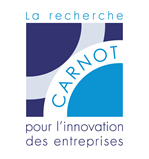Transports
Le monde des transports est aujourd'hui confronté à de formidables défis scientifiques, technologiques et organisationnels pour répondre aux besoins croissants de déplacements des personnes et des biens, tout en réduisant fortement son impact environnemental. Les instituts Carnot disposent de compétences remarquables pour relever ces défis et sont largement impliqués aux côtés des entreprises du secteur.
Electric engines
Demand for vehicle electrification continues to grow in response to massive environmental challenges. Electrification covers many transport applications and requires versatile electric engines that can be adapted to different technical specifications, keeping costs to a minimum by pooling as many components as possible.
Recovering waste heat from light-duty vehicles
Since 2014, Carnot IFPEN Transports Energie has been partnering Enogia, an SME specialised in heat recovery, which has been marketing stationary ORC (Organic Rankine Cycle) engine systems for a number of years. This technology, which is based on waste energy recovered from the cooling water of internal combustion engines, has been adapted to road transport for an automotive application.
REAL-E
REAL-e is the result of synergies unlocked between Capelec’s gas analysis expertise and pollutant emission models developed by Carnot IFPEN TE as part of the Carnauto initiative. It produces exhaustive and reliable mass measurements of car pollutant emissions that are independent of the figures produced by carmakers.
INNOVATIVE DAMPER CONCEPTS
The FUI INCAS project aims to come up with technological solutions for damping low-frequency [0-100Hz] vibrations in sensitive on-board equipment incorporated into complex mechanical ensembles (e.g. aircraft and space vehicles). This major project has benefited from the close ties between one of Carnot Ingénierie@ Lyon’s labs (MATEIS INSA Lyon CNRS) and an innovative SME (AVNIR ENGINEERING), which is a member of its technology transfer circle.
SELF-DRIVING, SOCIALLY INTELLIGENT VEHICLES
How can you boost the performance of self-driving connected vehicles? To a large extent, the answer lies in how space is shared with others. To do this effectively, the vehicle needs to communicate not just using wireless networks but also by behaving in a way that can be perceived by human users. The demonstration here presents these two approaches to interaction via minirobots and hybrid reality.
Recovering waste heat from trucks
Since 2014, Carnot IFPEN Transports Energie has been partnering Enogia, an SME specialised in heat recovery, which has been marketing stationary ORC (Organic Rankine Cycle) engine systems for a number of years. This technology, which is based on waste energy recovered from the cooling water of internal combustion engines, has been ad apted to transport for a long-haul truck application.

